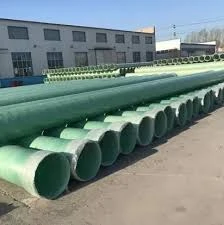
-
 Afrikaans
Afrikaans -
 Albanian
Albanian -
 Amharic
Amharic -
 Arabic
Arabic -
 Armenian
Armenian -
 Azerbaijani
Azerbaijani -
 Basque
Basque -
 Belarusian
Belarusian -
 Bengali
Bengali -
 Bosnian
Bosnian -
 Bulgarian
Bulgarian -
 Catalan
Catalan -
 Cebuano
Cebuano -
 China
China -
 China (Taiwan)
China (Taiwan) -
 Corsican
Corsican -
 Croatian
Croatian -
 Czech
Czech -
 Danish
Danish -
 Dutch
Dutch -
 English
English -
 Esperanto
Esperanto -
 Estonian
Estonian -
 Finnish
Finnish -
 French
French -
 Frisian
Frisian -
 Galician
Galician -
 Georgian
Georgian -
 German
German -
 Greek
Greek -
 Gujarati
Gujarati -
 Haitian Creole
Haitian Creole -
 hausa
hausa -
 hawaiian
hawaiian -
 Hebrew
Hebrew -
 Hindi
Hindi -
 Miao
Miao -
 Hungarian
Hungarian -
 Icelandic
Icelandic -
 igbo
igbo -
 Indonesian
Indonesian -
 irish
irish -
 Italian
Italian -
 Japanese
Japanese -
 Javanese
Javanese -
 Kannada
Kannada -
 kazakh
kazakh -
 Khmer
Khmer -
 Rwandese
Rwandese -
 Korean
Korean -
 Kurdish
Kurdish -
 Kyrgyz
Kyrgyz -
 Lao
Lao -
 Latin
Latin -
 Latvian
Latvian -
 Lithuanian
Lithuanian -
 Luxembourgish
Luxembourgish -
 Macedonian
Macedonian -
 Malgashi
Malgashi -
 Malay
Malay -
 Malayalam
Malayalam -
 Maltese
Maltese -
 Maori
Maori -
 Marathi
Marathi -
 Mongolian
Mongolian -
 Myanmar
Myanmar -
 Nepali
Nepali -
 Norwegian
Norwegian -
 Norwegian
Norwegian -
 Occitan
Occitan -
 Pashto
Pashto -
 Persian
Persian -
 Polish
Polish -
 Portuguese
Portuguese -
 Punjabi
Punjabi -
 Romanian
Romanian -
 Russian
Russian -
 Samoan
Samoan -
 Scottish Gaelic
Scottish Gaelic -
 Serbian
Serbian -
 Sesotho
Sesotho -
 Shona
Shona -
 Sindhi
Sindhi -
 Sinhala
Sinhala -
 Slovak
Slovak -
 Slovenian
Slovenian -
 Somali
Somali -
 Spanish
Spanish -
 Sundanese
Sundanese -
 Swahili
Swahili -
 Swedish
Swedish -
 Tagalog
Tagalog -
 Tajik
Tajik -
 Tamil
Tamil -
 Tatar
Tatar -
 Telugu
Telugu -
 Thai
Thai -
 Turkish
Turkish -
 Turkmen
Turkmen -
 Ukrainian
Ukrainian -
 Urdu
Urdu -
 Uighur
Uighur -
 Uzbek
Uzbek -
 Vietnamese
Vietnamese -
 Welsh
Welsh -
 Bantu
Bantu -
 Yiddish
Yiddish -
 Yoruba
Yoruba -
 Zulu
Zulu
fiberglass reinforced plastic tanks
The Advantages and Applications of Fiberglass Reinforced Plastic Tanks
Fiberglass Reinforced Plastic (FRP) tanks have become an essential component in various industries due to their versatility, durability, and resistance to corrosive substances. Made from a blend of plastic and glass fibers, these tanks offer numerous advantages over traditional storage solutions, such as metal or concrete tanks. This article explores the unique features of FRP tanks, their applications across different sectors, and the benefits they provide.
Understanding FRP Tanks
FRP tanks are crafted from a composite material that combines glass fibers and resin, resulting in a lightweight and strong structure. The manufacturing process typically involves winding glass strands around a mold, which is then infused with resin to create a solid, seamless product. This technique allows for the customization of tank shapes and sizes, making them suitable for a wide range of applications.
Key Advantages of FRP Tanks
1. Corrosion Resistance One of the primary benefits of FRP tanks is their exceptional resistance to corrosion. Unlike metal tanks that can rust or degrade when exposed to chemical substances, FRP tanks maintain their integrity over time, even when storing acidic or caustic materials. This characteristic makes them ideal for industries such as chemical processing, wastewater treatment, and agriculture.
2. Lightweight and Durable FRP tanks are significantly lighter than their metal or concrete counterparts. This lightweight nature facilitates easier transportation and installation, reducing labor costs and logistical challenges. Despite being lightweight, FRP tanks possess remarkable strength and durability, ensuring they can withstand harsh environmental conditions and physical stress.
3. Customizable Designs Another significant advantage of FRP tanks is their ability to be customized. Manufacturers can create tanks in various shapes, sizes, and colors to meet specific requirements. This flexibility allows for optimal use of space in facilities and compliance with varying regulatory standards across different industries.
4. Energy Efficiency FRP tanks are known for their excellent insulating properties. They can help maintain the temperature of stored materials, reducing energy consumption, especially in applications involving temperature-sensitive substances. This energy efficiency is increasingly crucial in today’s environmentally conscious world.
fiberglass reinforced plastic tanks

5. Longevity FRP tanks typically have a long service life, often exceeding 30 years with proper maintenance. This longevity makes them a wise investment for businesses looking to minimize replacement costs and maximize operational efficiency.
Applications of FRP Tanks
The versatility of FRP tanks allows them to be used in a wide variety of applications, including
- Chemical Storage Industries that handle corrosive chemicals, such as pharmaceuticals and petrochemicals, use FRP tanks for secure storage.
- Water and Wastewater Treatment FRP tanks are commonly employed in municipal and industrial water treatment facilities due to their resistance to a wide range of chemicals and their ability to handle diverse water conditions.
- Food and Beverage Industry FRP tanks are used for storing ingredients and finished products, as they are easy to clean and do not leach harmful substances into food products.
- Agriculture Farmers utilize FRP tanks for storing fertilizers and pesticides, benefiting from their resistance to corrosion and ease of installation.
Conclusion
Fiberglass Reinforced Plastic tanks represent a significant advancement in storage technology. Their unique combination of corrosion resistance, lightweight design, and customizable features makes them an ideal choice for a multitude of industries. As businesses increasingly look for sustainable and durable solutions, FRP tanks stand out as a reliable option that meets contemporary storage needs. Investing in FRP tanks not only enhances operational efficiency but also contributes to long-term success by providing a secure and effective means of material storage. As the demand for innovative storage solutions continues to grow, FRP tanks are poised to play a vital role in various sectors.









